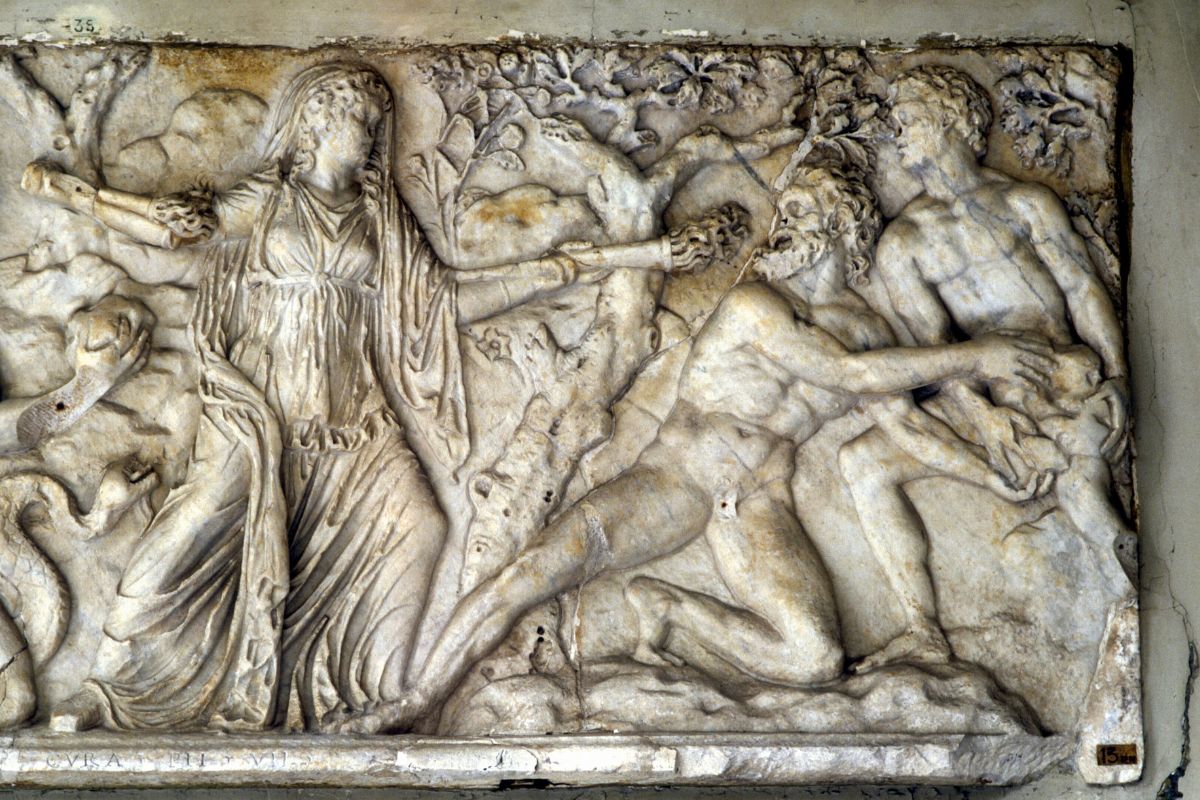In the intricate tapestry of Greek mythology, the pantheon is crowded with deities of diverse domains and temperaments.
You may wonder about the dynamics between two such contrasting figures as Hecate, the obscure goddess of witchcraft and magic, with her dominion over the night and the moon, and the radiant Aphrodite, whose realm is love, beauty, and desire.
The question of whether Hecate and Aphrodite get along touches on an intriguing aspect of mythological lore that delves into the potential for cooperation or conflict among the gods.
Exploring the relationship between Hecate and Aphrodite unveils a fascinating thread in the fabric of myth.
While not commonly found interacting in the classic tales, understanding how the ancient Greeks perceived their gods can shed light on whether these two powerful goddesses could share a harmonious bond.
Diverse Mythological Backgrounds
Exploring the backgrounds of Hecate and Aphrodite, you’ll find an intriguing contrast in Greek mythology.
Hecate is often recognized as the goddess with domains over magic and the night. She presides over crossroads, entrance-ways, and holds affinities with the spiritual world.
As a liminal deity, her standing is linked to boundaries and transitions, indicating a multifaceted role in the ancient Greek pantheon. Her origin story is complex and, sometimes, she’s connected to deities like Artemis or Persephone.
- Common Hecate associations:
- Witchcraft
- Ghosts
- Crossroads
- Magic
On the flip side, Aphrodite is the goddess of love, beauty, and sexual desire.
Unlike Hecate, who might appear more austere and shrouded in mystery, Aphrodite’s influence is pronounced in the realm of attraction and human relationships.
Her origins are told with a tinge of cosmic allure – born from the sea foam, which adds a romantic and poetic aspect to her narrative.
- Common Aphrodite associations:
- Love
- Beauty
- Pleasure
- Procreation
Your understanding of these goddesses enriches when considering their interaction in myths, where their distinct realms of authority occasionally converge, leading to interactions that range from harmonious to complex.

Historical Interactions in Mythology
In exploring the dynamics of Hecate and Aphrodite, you’ll find they have distinct realms of influence. Yet, they occasionally share common ground in mythological tales, suggesting a complex relationship.
Shared Mythological Events
Hecate and Aphrodite rarely interacted directly in classical myths, but they did share events where their narratives overlapped.
For example, during the myth of Demeter and Persephone, Hecate assisted Demeter after her daughter Persephone was abducted by Hades.
As a contrast, Aphrodite had no direct involvement in this tale, although her son, Eros, played a role in sparking desire, which can indirectly relate to the themes of love and loss within the story.
Ancient Sources of Mythical Alliances
You’ll find references to alliances between deities in ancient texts, although direct evidence of a bond between Hecate and Aphrodite is scarce.
In some sources, Hecate is mentioned as an attendant of Aphrodite, which suggests a possible harmonious relationship.
However, most texts reveal their interactions to be minimal, primarily owing to their different domains—Hecate’s connections to witchcraft and the underworld, and Aphrodite’s to love and beauty.
For a deeper understanding of Hecate’s role in Greek mythology, you can read the detailed insights on Hecate: Greek Goddess of Witchcraft, Sorcery and Magic.
Cults and Worship Practices
Worship and rituals varied significantly between Hecate and Aphrodite, reflecting their differing domains and the ways in which their followers sought their favor.
Hecate’s Followers and Rites
Hecate, recognized as the goddess of witchcraft and magic, presided over crossroads, entrance-ways, and the dark aspects of the moon.
To gain her protection or insights into mysteries, you would find that her followers erected small household shrines, rather than grand temples.
These were intimate spaces where one could perform rituals at night, especially at the intersection of three roads, known as a trivium.
Aphrodite’s Influence and Offerings
In contrast, Aphrodite was celebrated for beauty, love, and procreation.
Your approach to Aphrodite’s worship would typically include offerings at her numerous shrines and temples across Greece, including the famous sites of Cythera, Corinth, and Cyprus.
As a devotee, you might leave gifts of myrtle, incense, or even honey cakes at her altars.
It’s important to note that the offerings you would present were reflective of her domain over beauty and fertility.
Symbolic Associations and Significance
In this section, you’ll explore the rich tapestry of symbols that define Hecate and Aphrodite. Understanding these will enhance your grasp of their unique domains and how they may interact.
Hecate’s Symbology and Domains
Hecate is closely associated with the moon, which symbolizes cycles of life and hidden wisdom.
As a goddess, her influence extends into the spheres of earth, fertility, and witchcraft.
She is often depicted holding torches, representing illumination and guidance, or keys, signifying her role as a gatekeeper to hidden knowledge and the unseen realms.
- Symbols: Torch, Key, Dagger
- Domains: Magic, Crossroads, Ghosts
Aphrodite’s Representations and Powers
Aphrodite, the goddess of love and beauty, is symbolized by the dove, and seashells, particularly the scallop shell.
Her power over desire and the attraction that binds all beings is immense. Recognized for her captivating charm, Aphrodite’s influence touches on relationships, passion, and the arts.
- Symbols: Dove, Scallop Shell, Mirror
- Domains: Love, Beauty, Fertility
